A horticulture school of their own: Meet the pioneering women who helped launched Temple Ambler
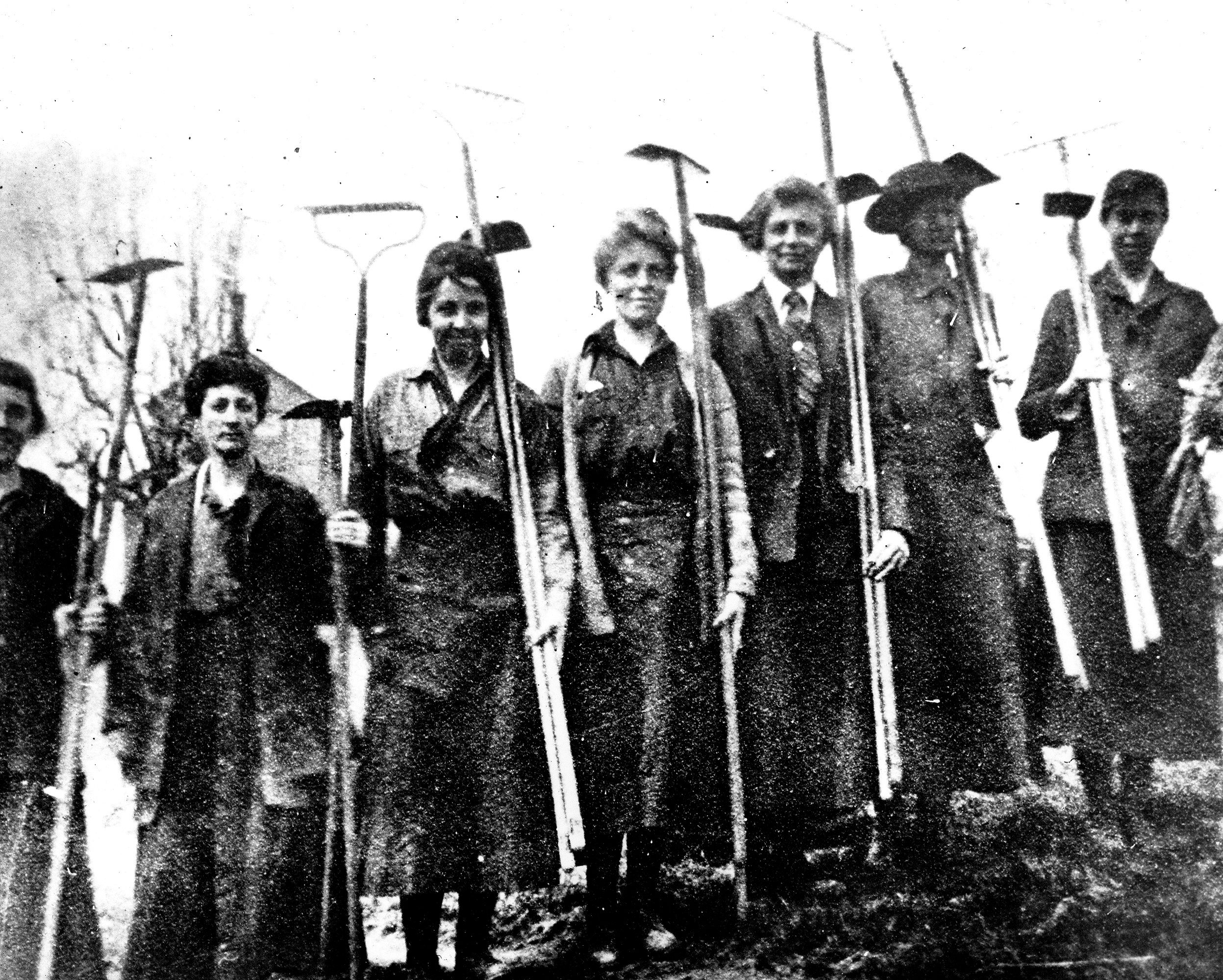
Started in 1911, the Pennsylvania School of Horticulture for Women was one of the first horticultural schools to be established by and for women in the U.S. Horticulture is the science and art of cultivating plants in gardens that are used by people to produce food, medicinal ingredients and aesthetic gratification of plants.
The school merged with Temple University Ambler in 1958 and remains a core location for student learning to this day.
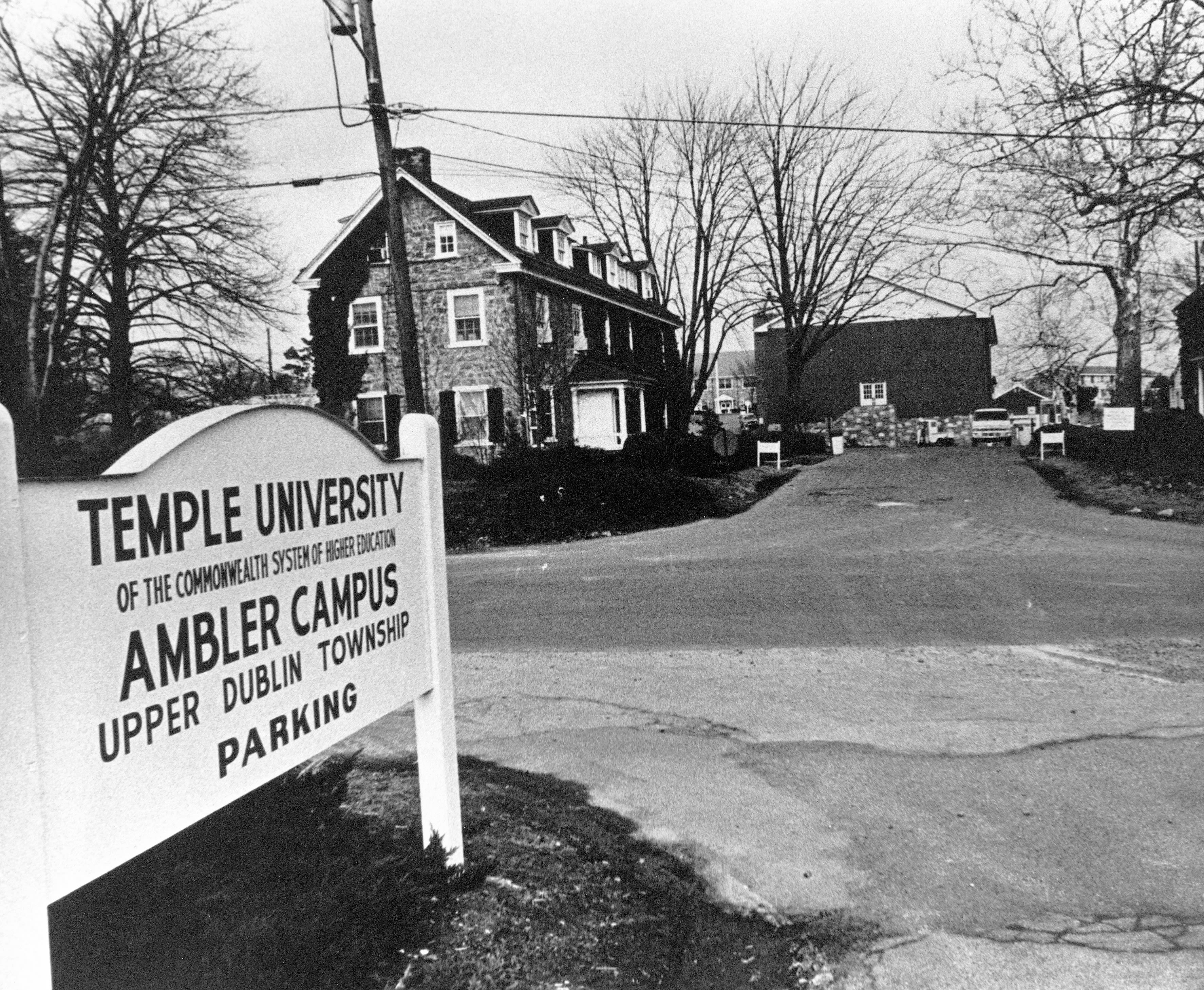
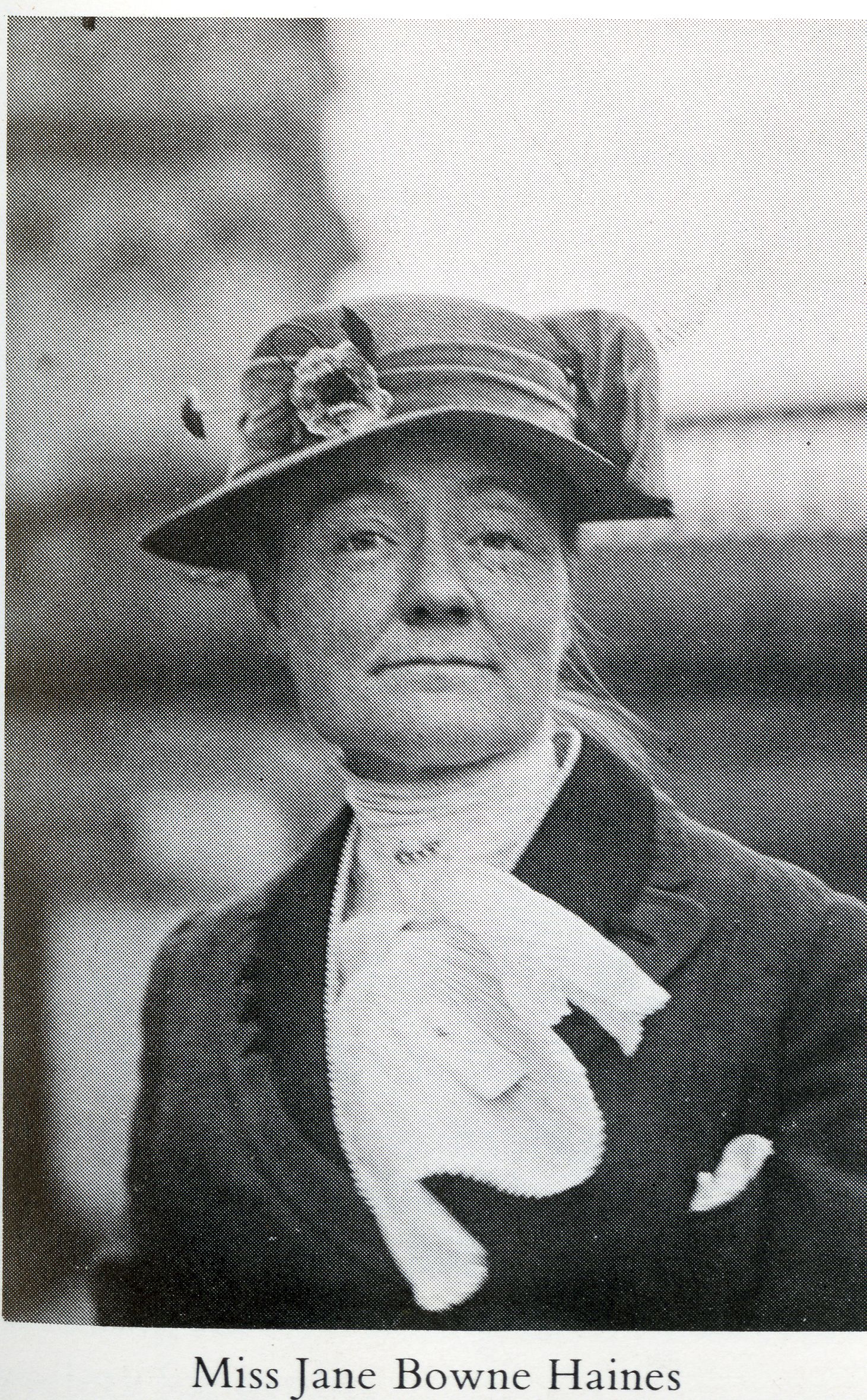
Jane Bowne Haines inherited a love of horticulture from her Quaker family in 1910. During a horse and buggy ride she came across the 71-acre McAlonan farm in Ambler, Pennsylvania. With financial support from friends and fellow graduates from Bryn Mawr, she purchased the property and founded the Pennsylvania School of Horticulture for Women in 1911 —one of the only schools of its type at the time in the United States.
Haines’s House, parts of which date back to the 1760s, became the first classroom building for the Pennsylvania School of Horticulture for Women. Mary D. Collins served as the school’s principal and Miss E.D. Varley was the only instructor to the first five students who enrolled.
Students Arrive
“Believing thoroughly in the principle of horticultural training for women, and that the time for founding such an institution is now come, a number of people have associated themselves together with the purpose of opening, in the near future, a school for the practical training of women in gardening and kindred subjects,” said Haines in a speech to her friends and backers in 1910.
“The purpose of the school is to offer educated and earnest-minded women who have a love for the country life and an aptitude for country pursuits, practical training in horticulture.
“The first students in the school will have much of the fun, for they will be given an insight into the foundation of things; the laying out and planting of the gardens and grounds, and the creating of custom and precedent so dear to all schools and colleges,” she added. “One principle above all others we will keep before us and would particularly enforce—the trained hand with the trained mind, which means mastery and success.”
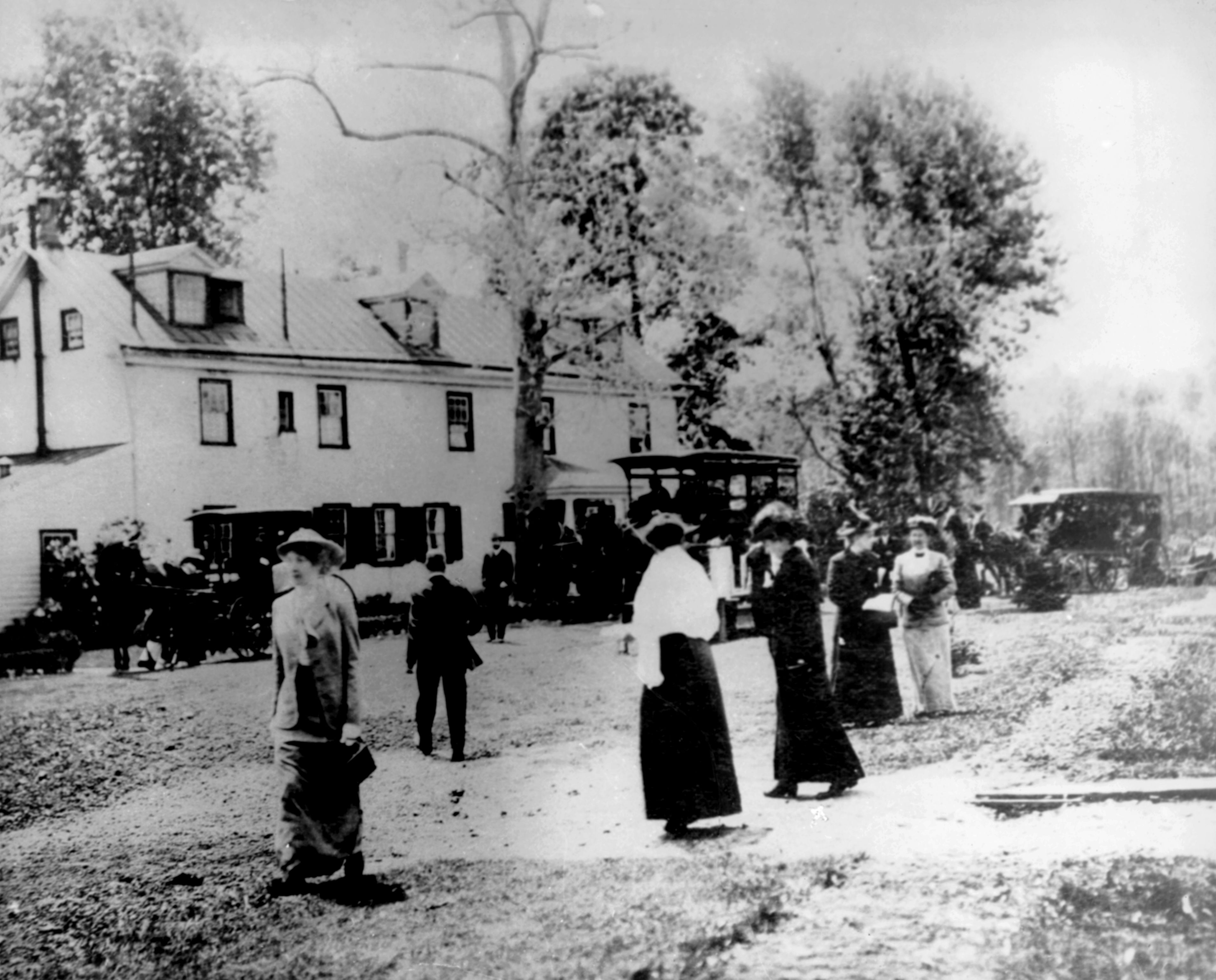
Louise Carter Bush-Brown may be seen here with fellow Class of 1914 Pennsylvania School of Horticulture for Women grads: Bush-Brown (pictured at the far left) would direct the course of the school from 1924 to 1952, and was part of the second graduating class in 1915.
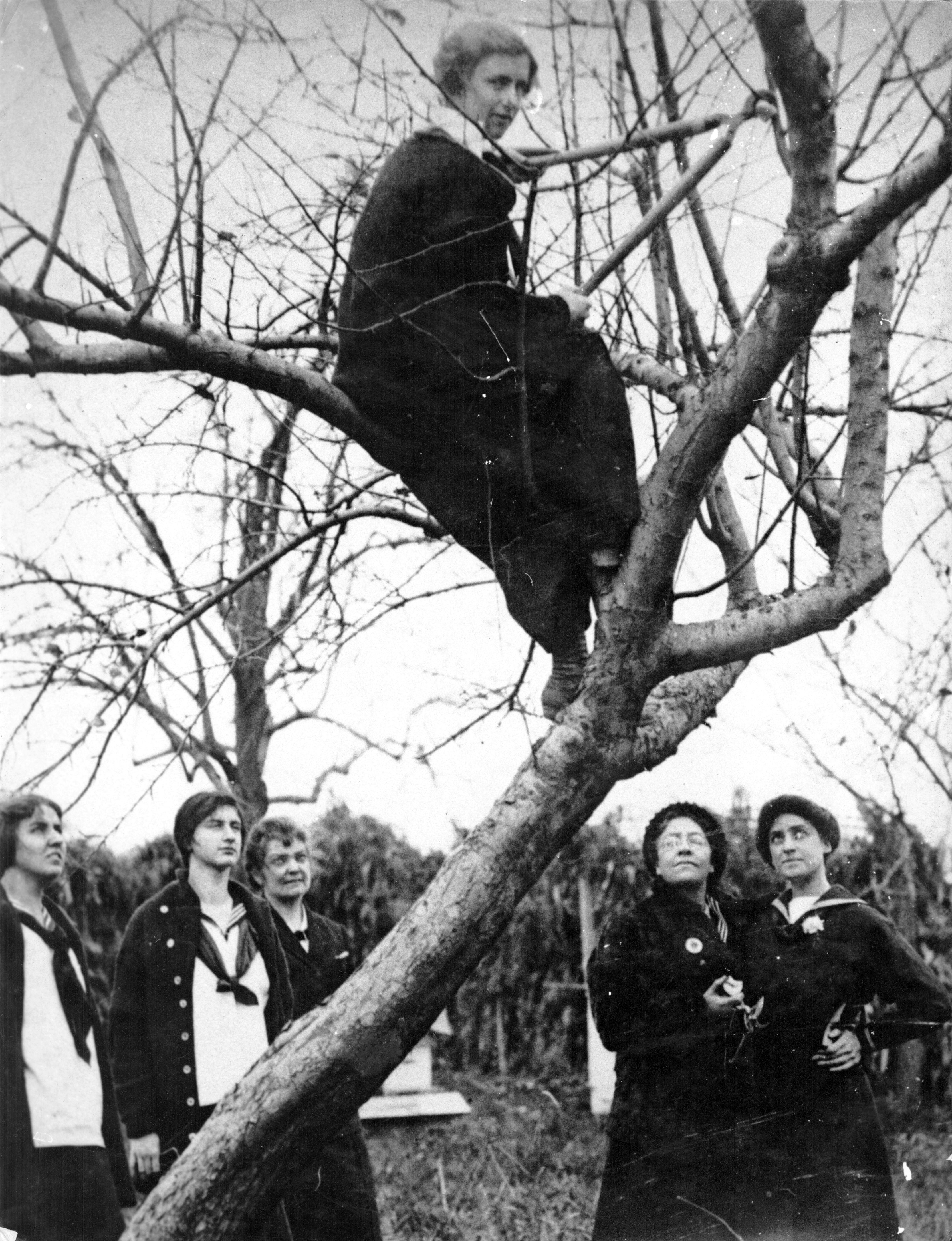
Tree pruning demonstration: Students weren’t afraid to get hands on with their studies, climbing trees for a pruning demonstration for example. Tree pruning is the selective removal of branches from a tree to improve its structure and direct new healthy growth. “The students in the first two graduating classes were, in the true sense of the word, pioneers. We were venturing into a completely new field for women and had no way of knowing what opportunities the future might hold for us,” said Bush-Brown in her 50th anniversary remembrances. “But we had enthusiasm for our work and faith and zeal. And we realized that we were blazing a new trail—that if we were successful in the positions which we held it would create new opportunities for the students of the future.”
Tree pruning demonstration: Students weren’t afraid to get hands on with their studies, climbing trees for a pruning demonstration for example. Tree pruning is the selective removal of branches from a tree to improve its structure and direct new healthy growth. “The students in the first two graduating classes were, in the true sense of the word, pioneers. We were venturing into a completely new field for women and had no way of knowing what opportunities the future might hold for us,” said Bush-Brown in her 50th anniversary remembrances. “But we had enthusiasm for our work and faith and zeal. And we realized that we were blazing a new trail—that if we were successful in the positions which we held it would create new opportunities for the students of the future.”
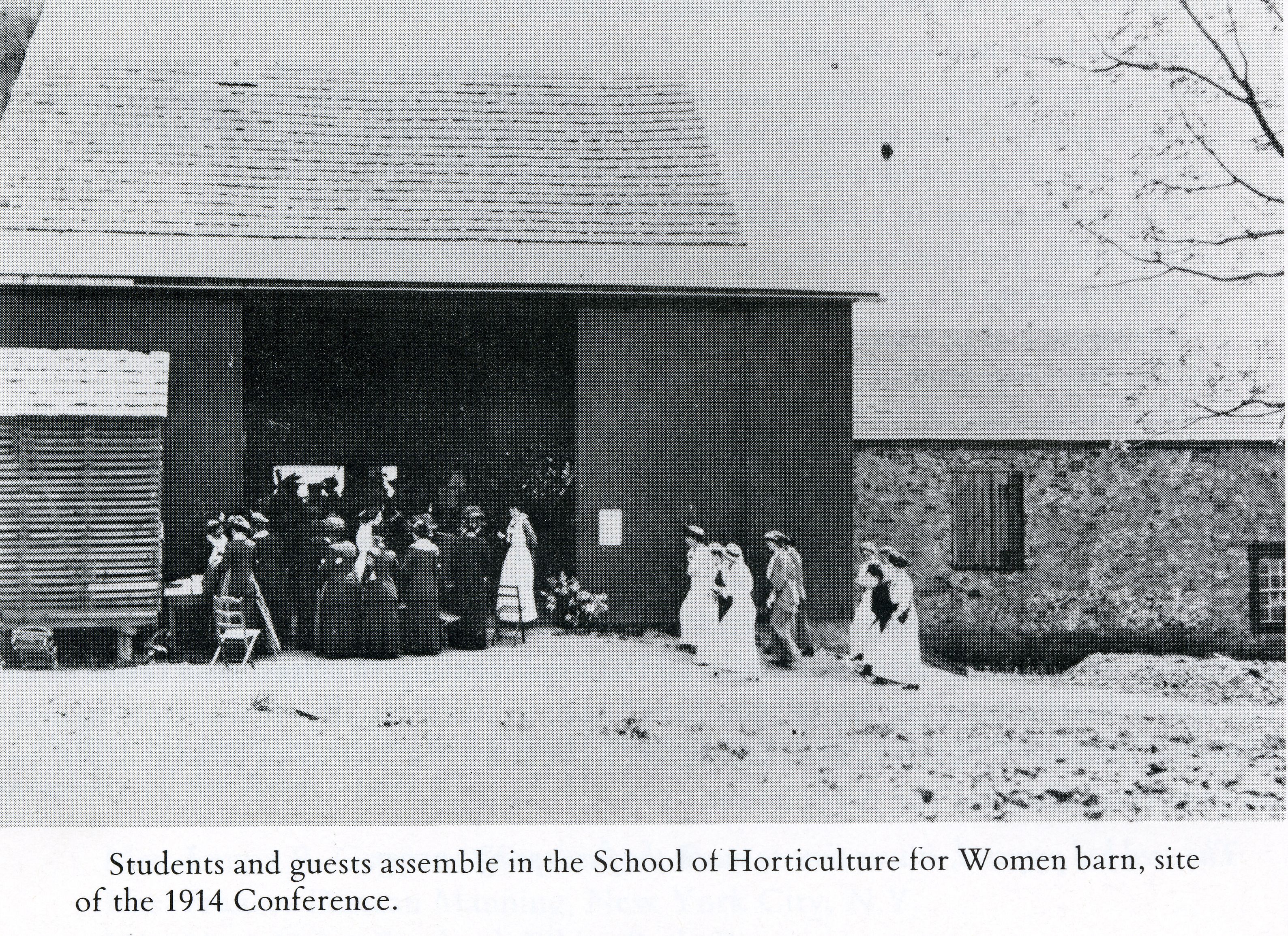
Woman’s National Farm and Garden Association: Three years after the founding of the Pennsylvania School of Horticulture for Women, the campus was the site for the creation of the Woman’s National Farm and Garden Association in 1914. The organization’s goal today is to improve the communities and the world through education and activities related to civic service, education and scholarship, environmental concerns, floral arts, gardening, horticultural therapy, and international cooperation.
Women’s Land Army of America
The Women’s Land Army of America was a civic organization in which women worked on farms to meet the agricultural needs of the country during World War I from 1917 to 1919. Enrollment increased during World War I as special training courses were offered in food production to meet the war effort.
Public opinion concerning women in the field of horticulture was changing and skepticism gave way to admiration for the energy and skill that the “Farmerettes” displayed in their work.
Philadelphia’s social elite began to think of it as a “proper finishing school” for their daughters.

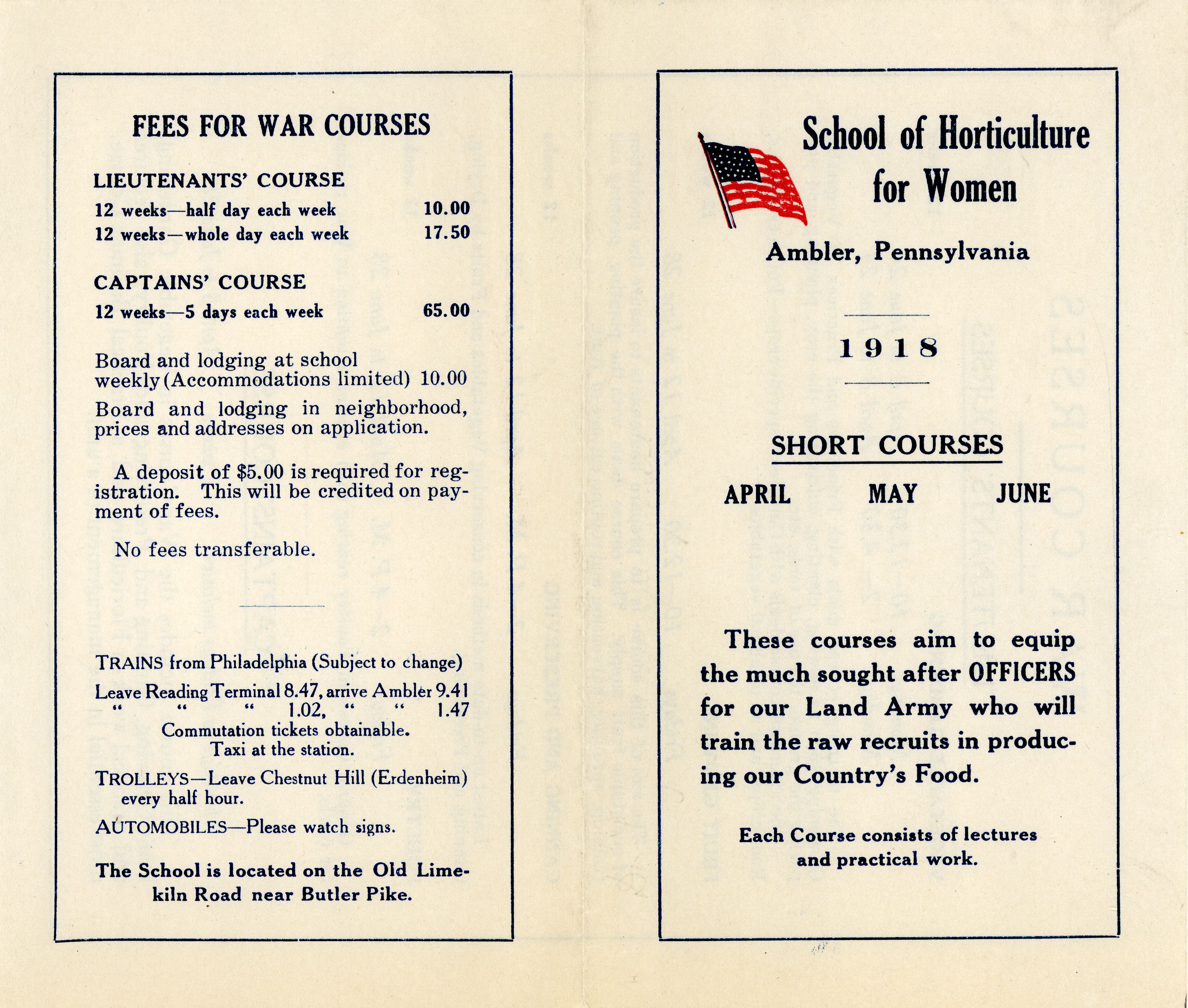
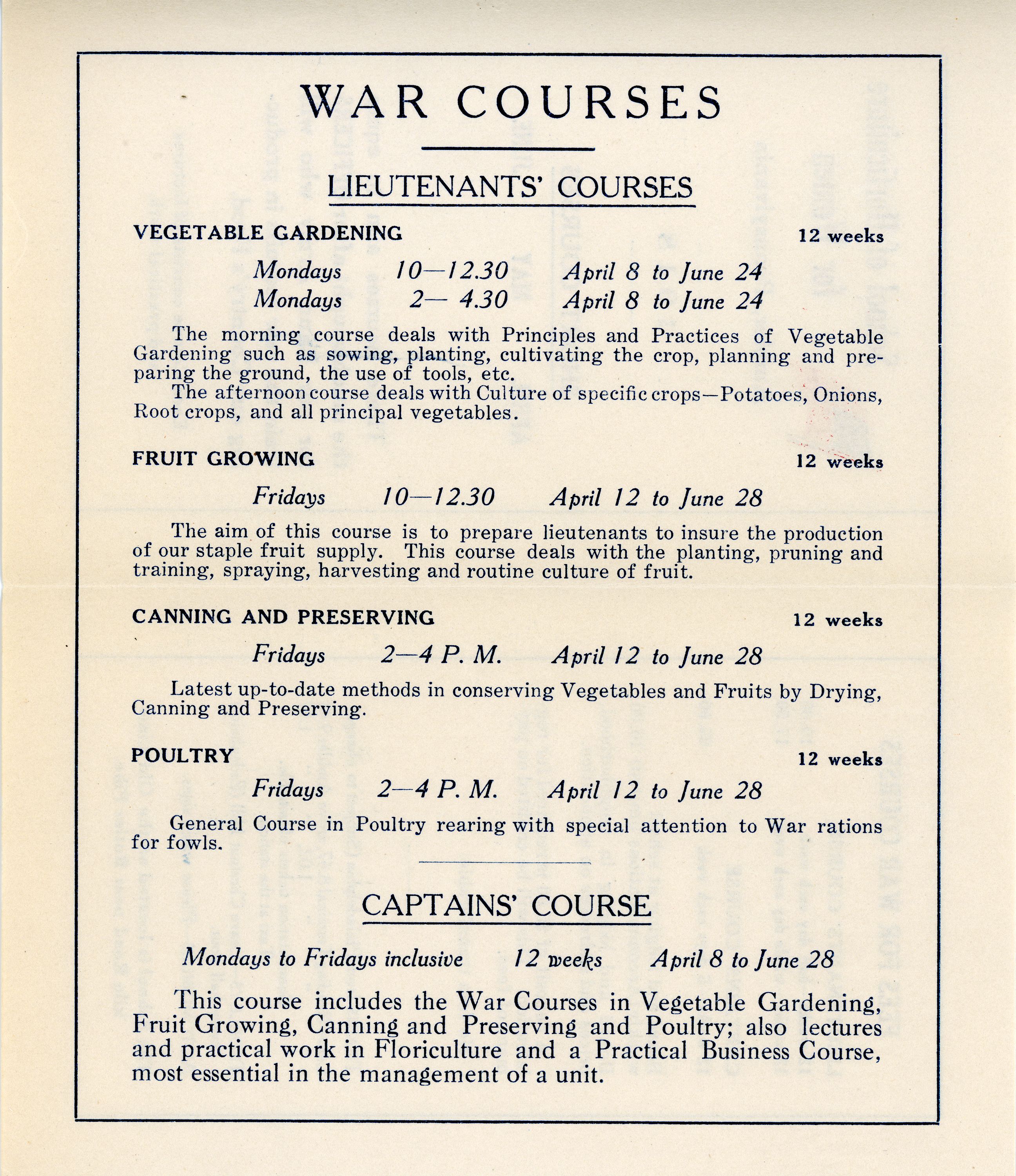
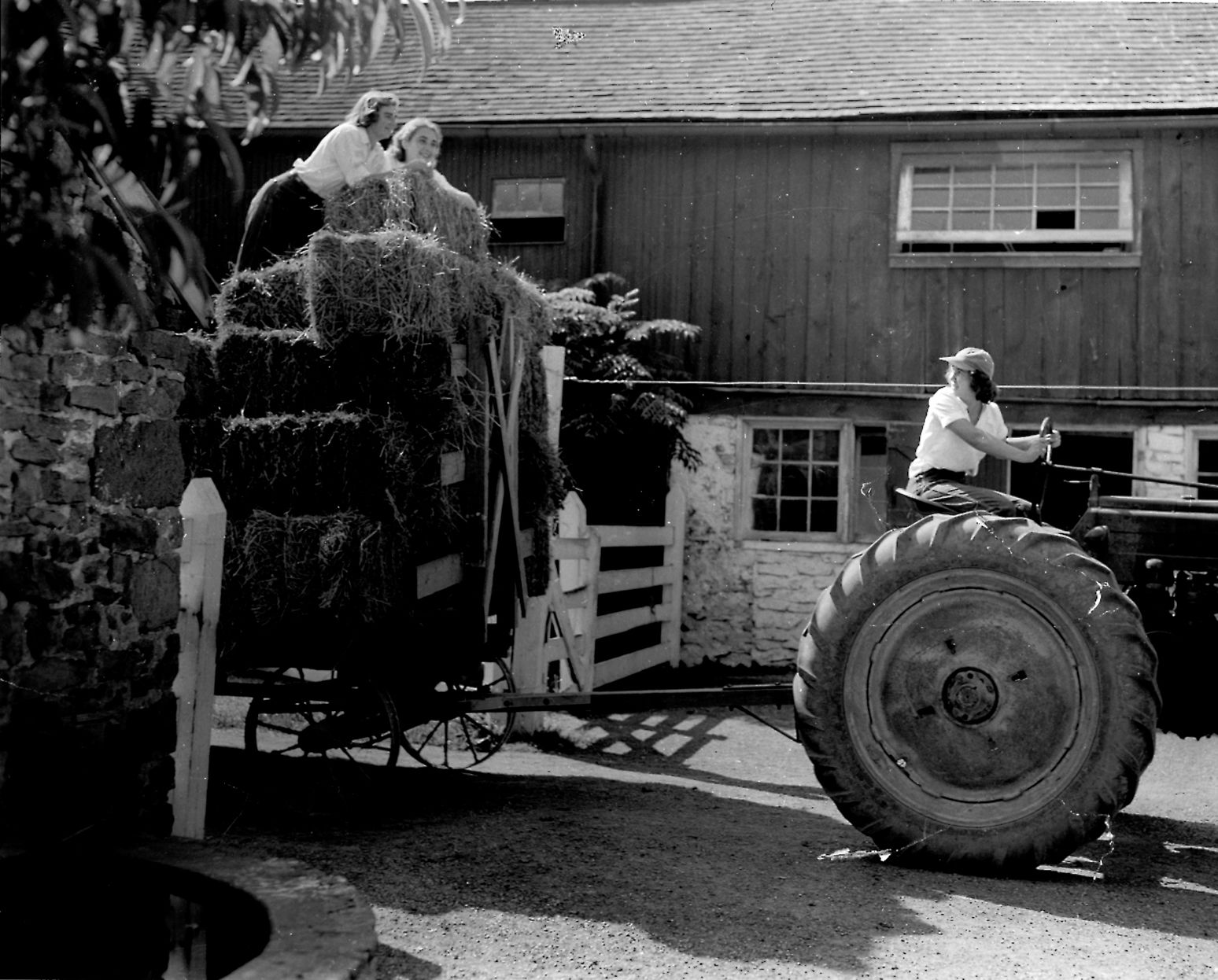
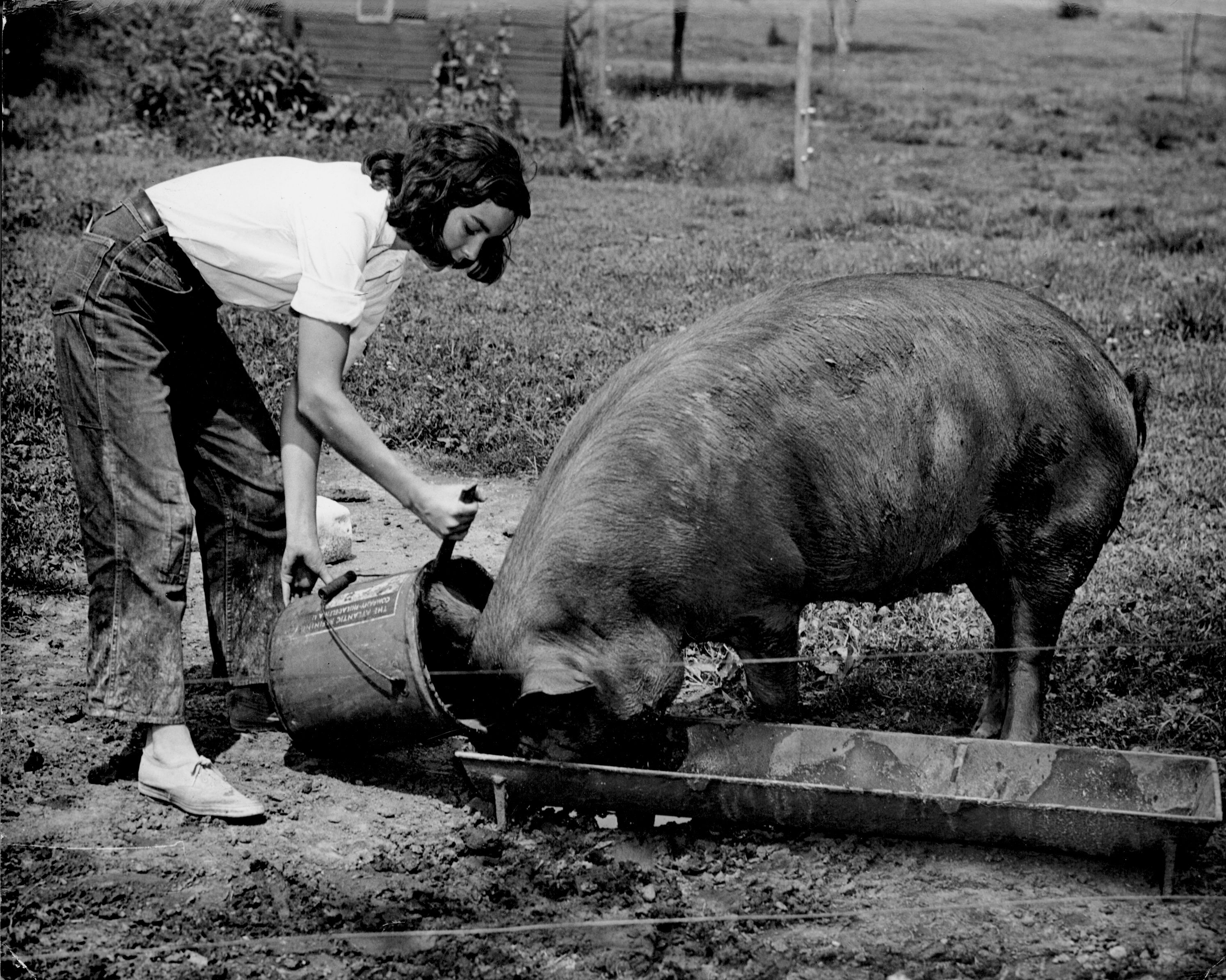
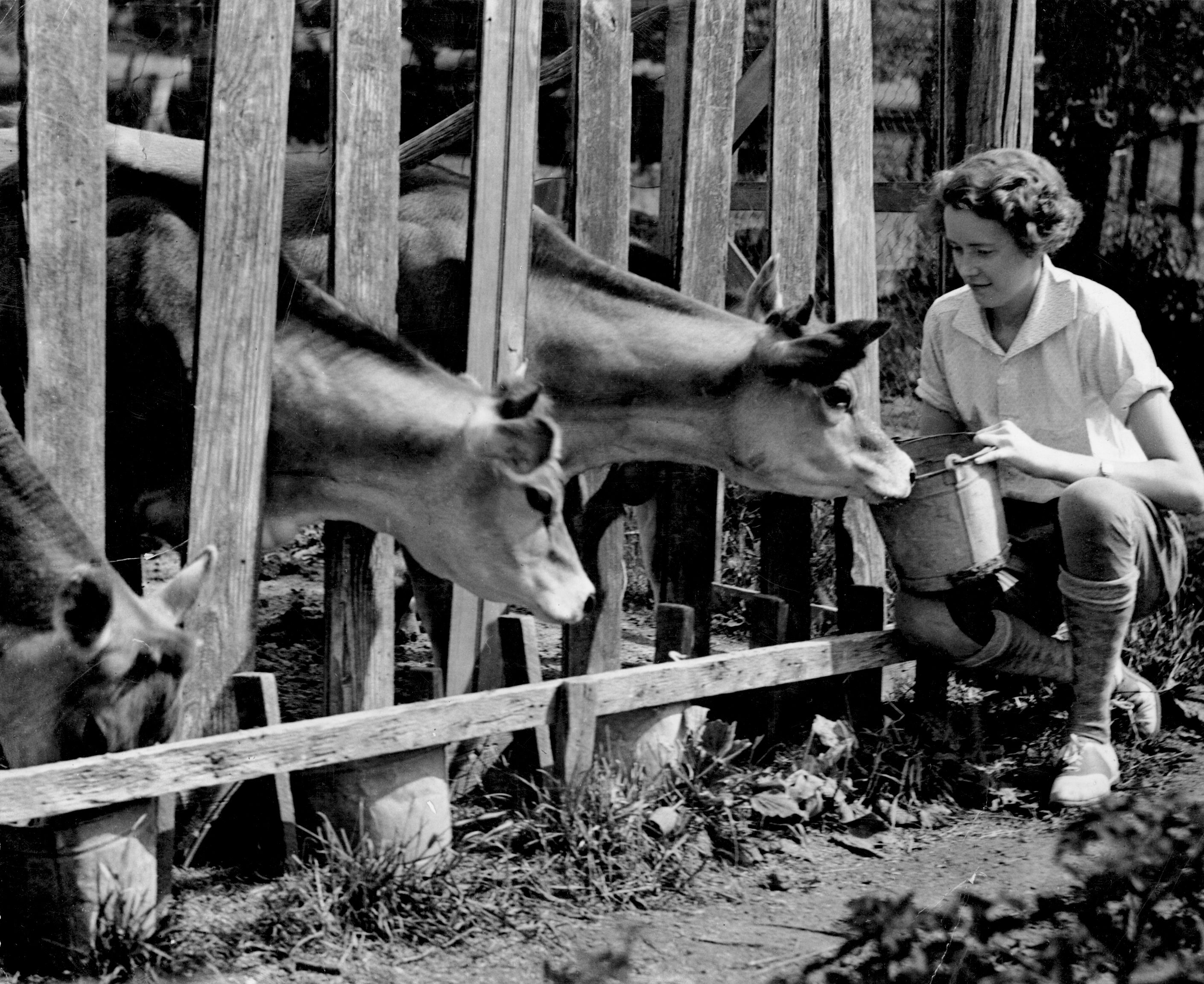
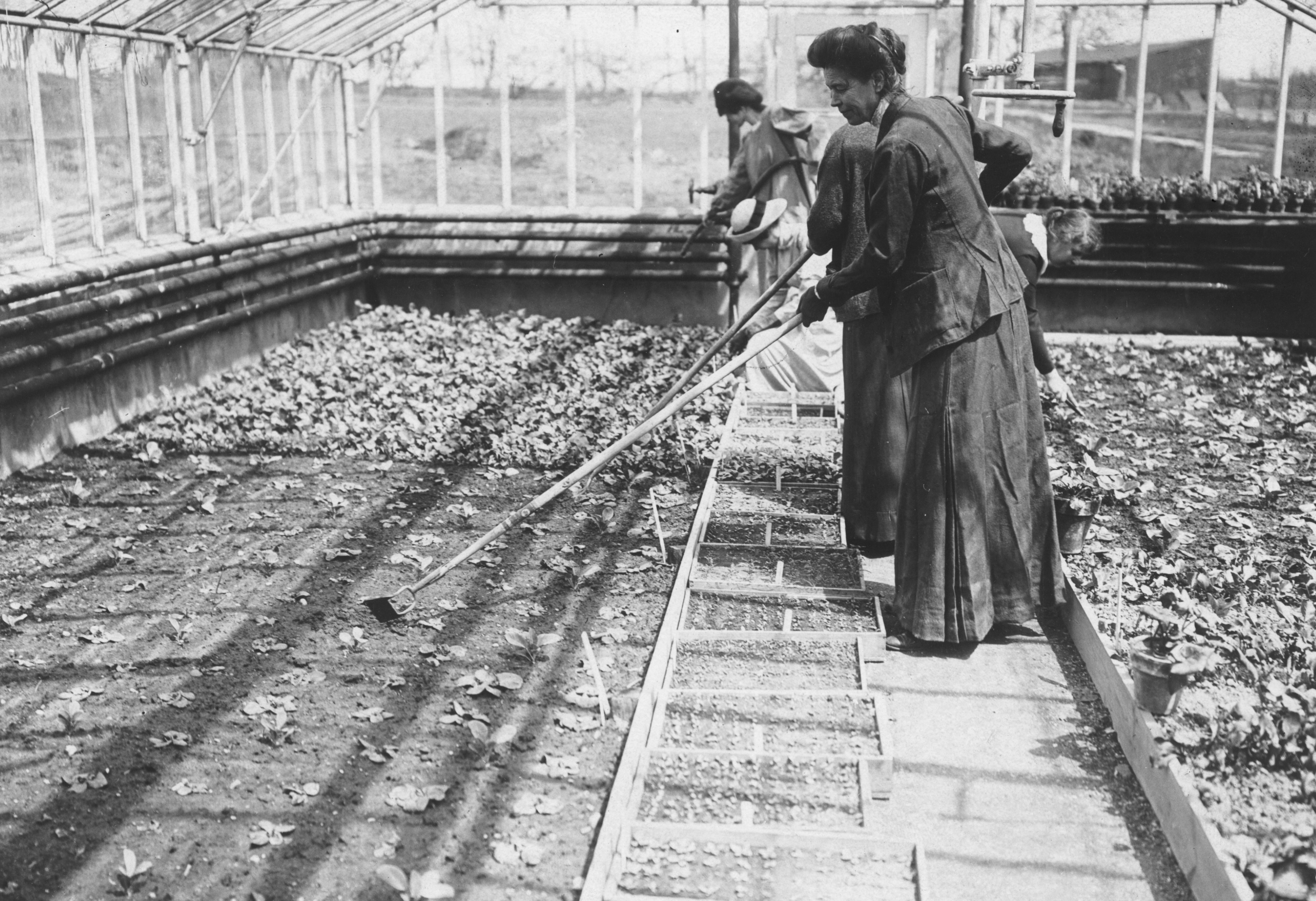

This “proper finishing school” expected its students to get hands-on experience with every aspect of their craft. The campus remained a working farm at the time.
This “proper finishing school” expected its students to get hands-on experience with every aspect of their craft. The campus remained a working farm at the time.

According to an advertisement in a 1928 edition of Wise Acres—the yearbook of the School of Horticulture—course offerings at that time included: Floriculture, Landscape Design, Botany, Poultry, Bees, Vegetable Growing, Fruit Growing and The Care of Farm Animals.
According to an advertisement in a 1928 edition of Wise Acres—the yearbook of the School of Horticulture—course offerings at that time included: Floriculture, Landscape Design, Botany, Poultry, Bees, Vegetable Growing, Fruit Growing and The Care of Farm Animals.

During the 1940s, the nearby Blakiston property was purchased, adding 116 acres to the Horticulture School property. According to a 1994 student project on the history of Temple Ambler, a new wing was added to the barn, now the gym, to house blue ribbon Jersey cows. Also, during this decade, interest in equestrian sports reached an all-time high and stables were built.
During the 1940s, the nearby Blakiston property was purchased, adding 116 acres to the Horticulture School property. According to a 1994 student project on the history of Temple Ambler, a new wing was added to the barn, now the gym, to house blue ribbon Jersey cows. Also, during this decade, interest in equestrian sports reached an all-time high and stables were built.

Sowing the seeds: More than 100 years ago, the students, directors and teachers at the Pennsylvania School of Horticulture for Women planted the seeds of education that would become the Temple University Ambler of today.
Sowing the seeds: More than 100 years ago, the students, directors and teachers at the Pennsylvania School of Horticulture for Women planted the seeds of education that would become the Temple University Ambler of today.
Formal-Perennial Gardens: In 1926, acclaimed landscape architect Beatrix Farrand and James Bush-Brown, the husband of Louise Bush-Brown and a member of the school’s faculty from the 20s through the 50s, designed the nationally recognized Formal Gardens. Students continue to plant and care for the grounds and extensive perennial beds, which remain a centerpiece of the campus today.
Becoming Part of Temple
In 1957, change was in the air at the Pennsylvania School of Horticulture for Women. The Pennsylvania States Council on Education gave the Horticulture School permission to change its name to Ambler Junior College and to grant the associate of science degree. The school had received provisional accreditation as a junior college in 1952.
On Jan. 27, 1961, the Board of Trustees formalized the transition to The Ambler Campus of Temple University.

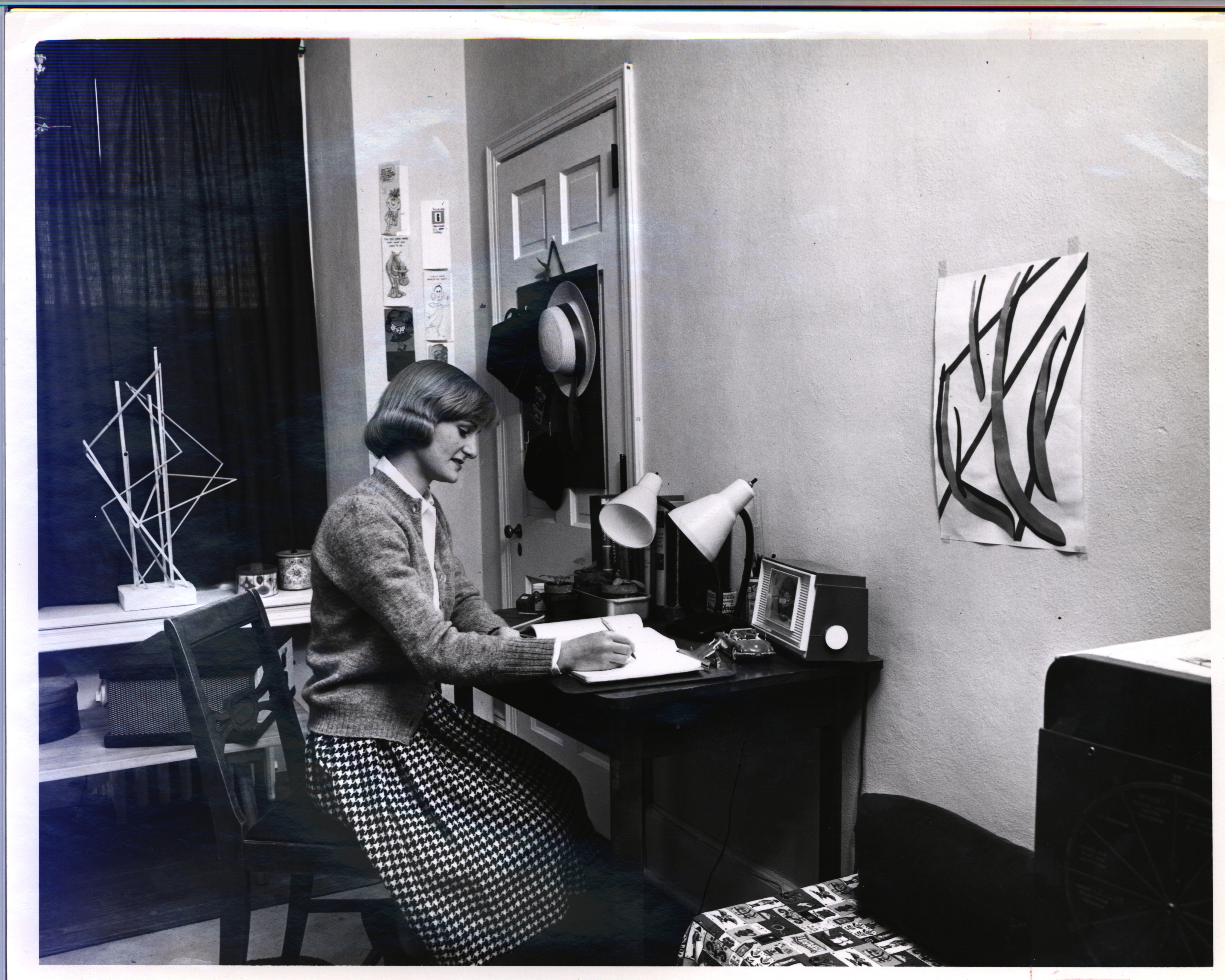
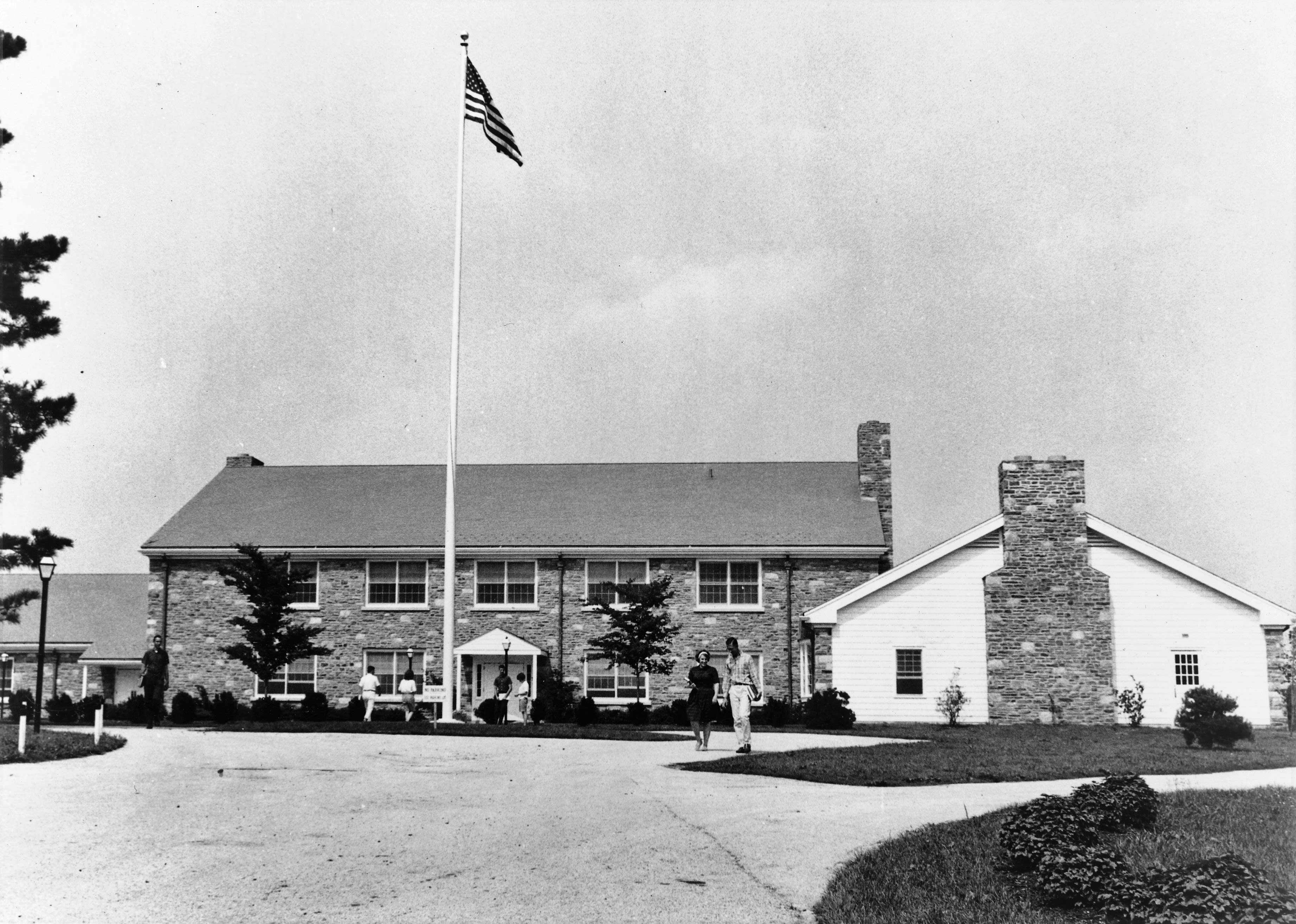
From the inception of the Pennsylvania School of Horticulture for Women to now, students have engaged in hands-on learning and innovative research and have developed a unique understanding of the essential connections between the natural and built environments. The students continue to embody the core concept of “the trained hand with the trained mind” that Jane Bowne Haines and many that followed her dedicated their lives to.
In September 2002, the Pennsylvania Historical and Museum Commission dedicated a historic marker commemorating the Pennsylvania School of Horticulture for Women at Ambler.
The marker, located near the campus entrance on Meetinghouse Road, reads in part: “This school was among the first in the nation to educate women for careers in horticulture and agriculture. It was founded in 1910 on this site by Jane Bowne Haines and a “congress of women.”
Leaders and alumni like Faith Tiberio, at left, and Ernesta Ballard, right, led the Woman’s National Farm and Garden Association and the Pennsylvania Horticultural Society to new heights.
The book on campus history: A Century of Cultivation 1911 to 2011—100 Years from the Pennsylvania School of Horticulture for Women to Temple University Ambler covers the first 100 years of the Ambler Campus. It was cowritten by Jenny Rose Carey, the former director of the Ambler Arboretum of Temple University, and Mary Anne Blair Fry, a graduate of the Class of 1958—Fry has the distinction of being one of only eight people to ever graduate from Temple with an agriculture degree.
For more information about the history of Temple University Ambler and the Ambler Arboretum, visit ambler.temple.edu/arboretum/about/history/century-cultivation.
